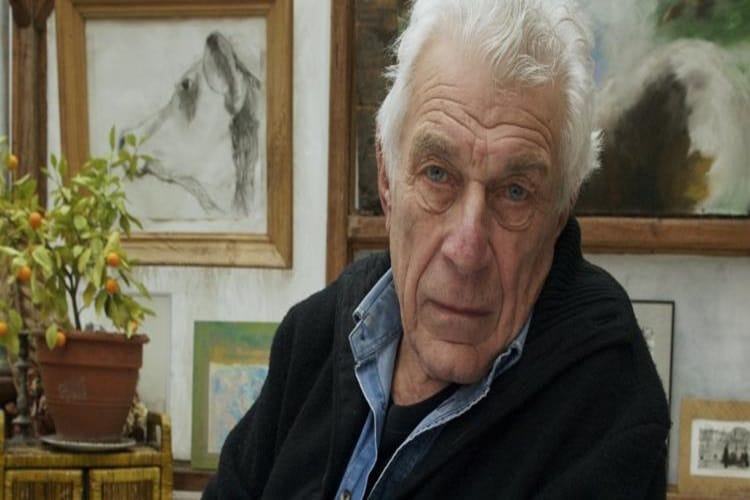Brushstrokes of Revolution: The John Berger Story

John Berger (5 November 1926 – 2 January 2017) was an English art critic, novelist, painter and poet.
Life and Career
John Berger was born on 5 November 1926, in London, United Kingdom.
He came from a middle-class family, and his early experiences during World War II significantly influenced his perspective on life. Berger served in the British Army from 1944 to 1946, an experience that shaped his anti-establishment views.
After the war, Berger attended the Chelsea School of Art in London, where he studied painting. His interest in the arts expanded beyond visual arts to literature and philosophy. This multidisciplinary approach later became a hallmark of his work.
Berger’s career took a significant turn with the publication of his first novel, “A Painter of Our Time,” in 1958. However, he gained widespread recognition and influence through his work as an art critic. His groundbreaking television series and book, “Ways of Seeing” (1972), challenged traditional art criticism and offered a more accessible and critical approach to understanding art.
Berger’s writing often delved into socio-political issues, and he was an outspoken critic of capitalism, consumerism, and inequality. His Marxist beliefs were evident in many of his works, including “The Success and Failure of Picasso” (1965) and “Art and Revolution: Ernst Neizvestny and the Role of the Artist in the USSR” (1969).
Apart from his writing and criticism, Berger continued to paint and exhibit his artwork throughout his life. His art was characterized by a commitment to portraying the human experience and challenging established norms.
He died on 2 January 2017, in Antony, France.
Award and Legacy
Berger won the Booker Prize for Fiction for his novel “G.” This prestigious award elevated his status in the literary world and brought attention to his innovative storytelling.
The Golden PEN Award is presented to authors for a “Lifetime’s Distinguished Service to Literature.” Berger received this honor in recognition of his outstanding contributions to literature.
Berger was awarded the European Essay Prize by the Charles Veillon Foundation for his exceptional achievements in the genre of essay writing.
The French government honored Berger with the title of Commandeur de l’Ordre des Arts et des Lettres, recognizing his significant contributions to the arts and literature.
Berger’s most enduring legacy is perhaps his impact on art criticism through “Ways of Seeing.” This work challenged established norms and made art more accessible to a broader audience. It continues to be a foundational text in art education.
Berger’s novels, essays, and poetry remain influential. His unique narrative style, blending fiction and philosophy, has inspired generations of writers. “G.” and other works continue to be studied and celebrated for their depth and originality.
Berger’s commitment to social justice and his critique of capitalism have inspired activists and thinkers. His writings on the role of the artist in society and his Marxist perspective continue to resonate in discussions about art, politics, and inequality.
Berger’s ability to seamlessly move between visual arts, literature, and philosophy showcased the power of a multidisciplinary approach. This approach has influenced scholars and artists who recognize the interconnectedness of creative disciplines.
Berger’s emphasis on empathy, the human experience, and the need for a more just society remains relevant. His work encourages reflection on our relationship with art, society, and each other.
Observer Voice is the one stop site for National, International news, Sports, Editor’s Choice, Art/culture contents, Quotes and much more. We also cover historical contents. Historical contents includes World History, Indian History, and what happened today. The website also covers Entertainment across the India and World.

